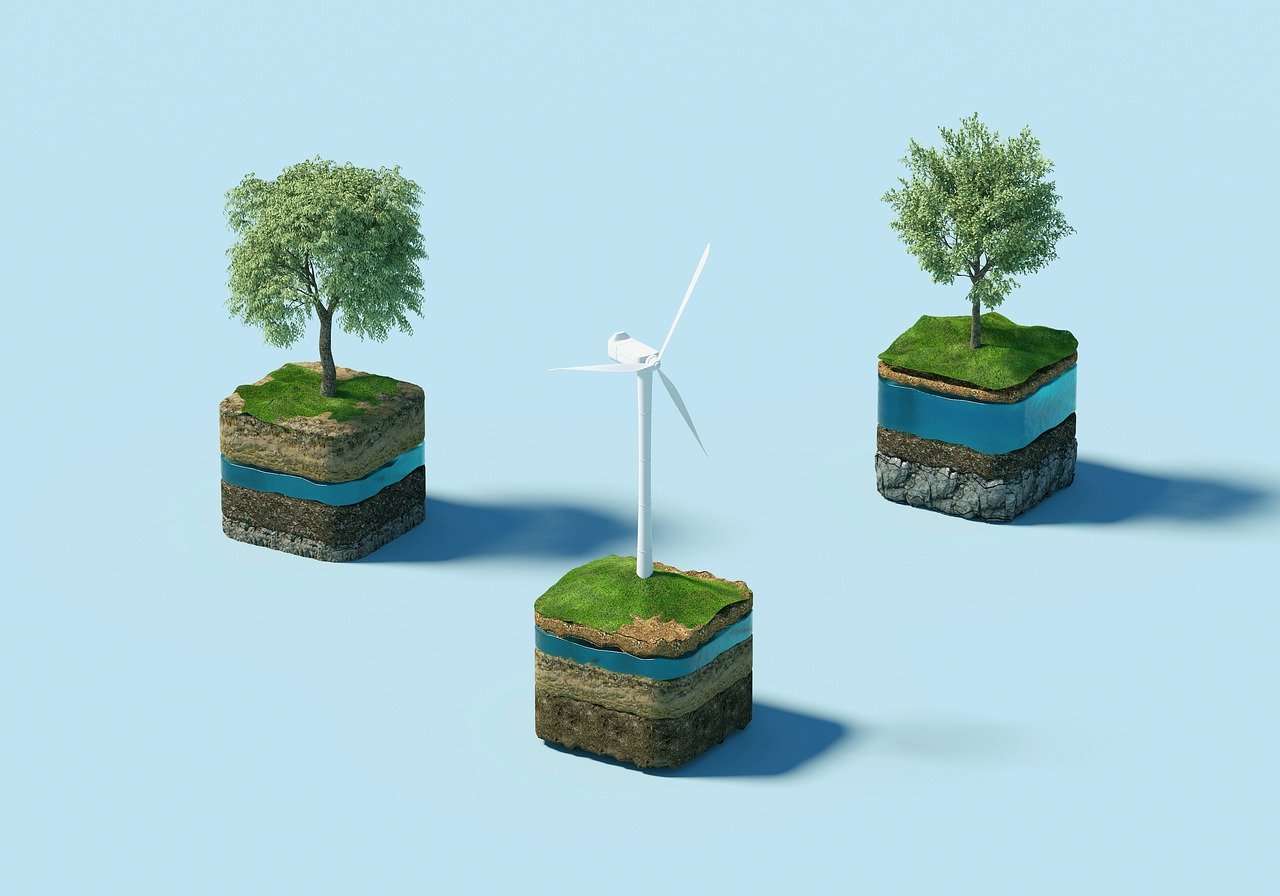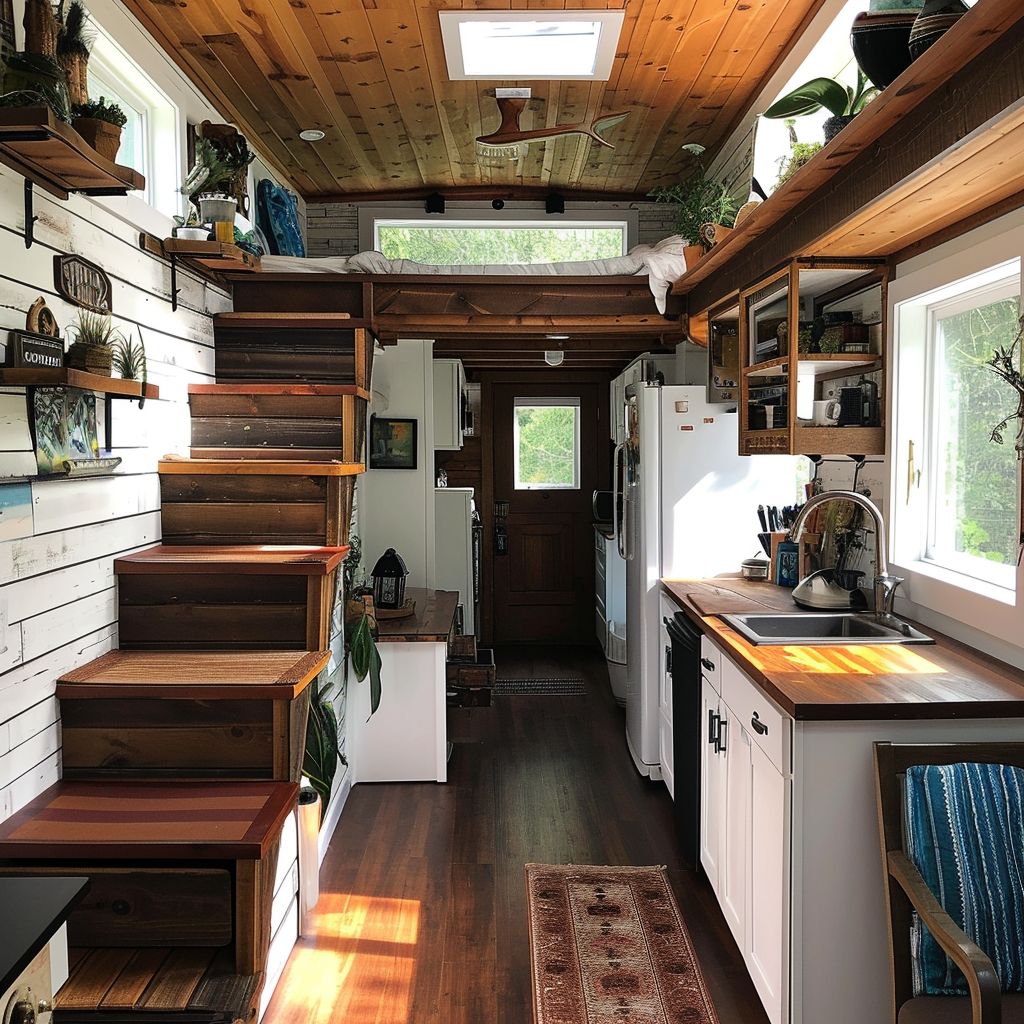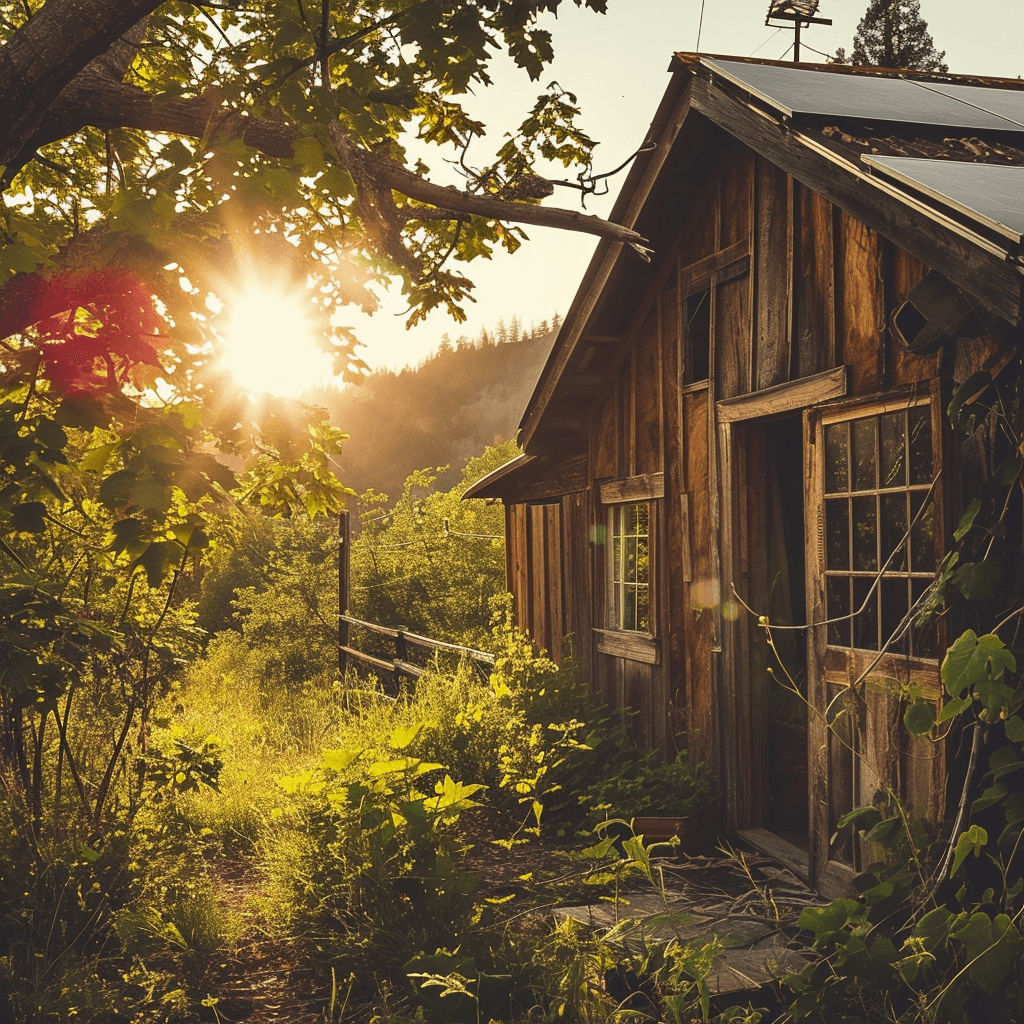Living off-grid has become an increasingly popular lifestyle choice for many individuals seeking to embrace self-sufficiency and reduce their environmental footprint. But beyond the allure of disconnecting from the grid and embracing a simpler way of life, a burning question persists in the minds of potential off-gridders: Can off-grid living save you money in the long run? In this article, I will explore the financial aspects of off-grid living and shed light on whether it truly offers substantial savings or is merely another costly endeavor.
What is Off-Grid Living?
Definition
Off-grid living refers to a lifestyle where individuals or families are self-sufficient and independent from public utility services such as electricity, water, and sewage systems. In off-grid living, individuals generate their own power, collect and manage their water supply, and adopt sustainable practices to meet their daily needs. It is a way of living that promotes self-reliance and reduces dependence on external resources.
Components of Off-Grid Living
Off-grid living encompasses various components that are crucial for a sustainable and independent lifestyle:
Alternative Energy Sources: Generating electricity through renewable energy sources such as solar panels, wind turbines, or hydro power is a key aspect of off-grid living. This allows individuals to harness clean and sustainable energy, reducing their reliance on traditional power grids.
Water Supply and Management: Off-grid living often involves collecting rainwater, using well or borehole water, or implementing water filtration and purification systems. Conserving and managing water resources effectively is essential for sustaining off-grid living practices.
Infrastructure Costs: Building the necessary infrastructure, such as setting up solar panels, constructing a water collection system, or developing a composting toilet, requires an initial investment. This includes the cost of equipment, materials, and installation, which varies depending on the size and complexity of the off-grid setup.
Initial Investment for Off-Grid Living
Alternative Energy Sources
Investing in alternative energy sources, such as solar or wind power, can be a significant expense upfront. The cost of purchasing and installing solar panels, batteries, and inverters can range from several thousand to tens of thousands of dollars. However, it is important to consider the long-term benefits and potential savings that come with generating your own electricity. Over time, the reduction or elimination of monthly utility bills can offset the initial investment.
Water Supply and Management
Establishing a reliable water supply system is another aspect of off-grid living that requires an initial investment. Installing rainwater collection systems, wells, or water filtration systems can involve expenses for equipment, installation, and maintenance. However, the long-term savings on water bills and the security of having access to water during emergencies make this investment worthwhile.
Infrastructure Costs
Creating the necessary infrastructure for off-grid living also incurs expenses. Building or retrofitting a home to be energy-efficient, installing insulation, utilizing sustainable building materials, and establishing composting toilets may require a higher initial investment compared to traditional homes. However, these infrastructural improvements contribute to long-term savings on energy and waste management costs.
Reduced Monthly Expenses
Lower Utility Bills
One of the main advantages of off-grid living is the substantial reduction or complete elimination of monthly utility bills. Generating your own electricity through renewable energy sources can significantly lower or completely eliminate the need to rely on grid electricity. This translates into substantial savings over time, allowing individuals to allocate their financial resources to other priorities.
Savings on Food and Water
Living off-grid often entails growing one’s food through sustainable practices such as permaculture or organic farming. By producing their own fruits, vegetables, and herbs, individuals can reduce expenses on groceries and ensure the quality and freshness of their food. Additionally, managing water resources efficiently can lead to savings on water bills, as well as avoiding the potential price fluctuations of water.
Less Dependence on External Services
Off-grid living encourages individuals to become less reliant on external services and providers. By embracing self-sufficiency, individuals can reduce expenses associated with hiring external contractors for maintenance or repairs. Developing practical skills and knowledge in areas such as renewable energy, plumbing, and construction allows off-gridders to handle various tasks independently, resulting in cost savings.
Maintenance and Repairs
Self-Sufficiency in Maintenance
One of the advantages of off-grid living is the self-reliance it fosters. When it comes to maintenance, off-gridders are often equipped with the necessary skills and knowledge to handle basic upkeep on their properties and systems. Understanding how to troubleshoot, repair, and maintain renewable energy systems, water management systems, and other off-grid infrastructure can save individuals substantial sums of money by minimizing the need for hiring professional help.
Lower Repair Costs
Off-grid living promotes a more sustainable and durable way of living, reducing reliance on disposable and low-quality products. Using high-quality materials and investing in sturdy infrastructure can result in fewer breakdowns and repairs. This translates into cost savings over time, as off-gridders can avoid frequent expenses associated with replacing or fixing appliances, systems, or components.

Long-Term Sustainability
Protection against Rising Energy Costs
As energy costs continue to rise, off-grid living provides a safeguard against the increasing expenses associated with grid electricity. By generating their own power through renewable sources, off-gridders are insulated from fluctuations in energy prices and can avoid being subject to utility companies’ pricing structures. This long-term independence from rising energy costs ensures financial stability and peace of mind.
Resilience in the Face of Economic Instability
Off-grid living offers a sense of security and resilience during times of economic instability. By reducing dependence on external systems and resources, off-gridders are better equipped to withstand downturns or crises that can impact traditional infrastructure and services. This self-reliant lifestyle allows individuals to maintain their standard of living even in challenging economic situations.
Tax Incentives and Rebates
Renewable Energy Tax Credits
In many countries, governments offer tax incentives, rebates, or grants for individuals who invest in renewable energy systems. These incentives aim to promote the adoption of sustainable technologies and ease the financial burden of transitioning to off-grid living. Taking advantage of such programs can offset a portion of the initial investment and accelerate the financial benefits of going off-grid.
Other Government Financial Assistance
In addition to renewable energy tax credits, governments may offer other financial assistance programs to support off-grid living. These can include grants for sustainable building materials, subsidies for water conservation systems, or funding for community-driven off-grid initiatives. Exploring and accessing these opportunities can alleviate some of the upfront costs and make off-grid living more accessible for individuals in various financial situations.
Environmental Benefits
Reduced Carbon Footprint
Off-grid living directly contributes to a reduced carbon footprint. By generating electricity from renewable sources, off-gridders significantly reduce their reliance on fossil fuels, decreasing carbon dioxide emissions. Additionally, the adoption of sustainable practices such as composting, rainwater harvesting, and permaculture minimizes waste and promotes environmental conservation. Off-grid living, therefore, presents a tangible solution for individuals seeking to minimize their environmental impact.
Preserving Natural Resources
Through off-grid living practices, individuals conserve and preserve natural resources. By relying on rainwater or well water, off-gridders alleviate the strain on public water systems, ensuring the sustainability of local water sources. The use of renewable energy reduces the demand for non-renewable resources, protecting natural landscapes and habitats. This conscious approach to resource management contributes to the long-term preservation of the environment.
Health and Well-being
Fresh and Healthy Food
Off-grid living often involves growing one’s food using organic and sustainable methods. This allows individuals to have direct control over the quality and safety of their produce. Off-gridders can choose to prioritize nutrient-rich crops, avoid harmful pesticides or genetically modified organisms (GMOs), and experience the satisfaction of harvesting and consuming their homegrown food. By prioritizing fresh and healthy food, off-gridders can enhance their overall well-being.
Reduced Exposure to Toxic Chemicals
Living off-grid can provide individuals with a healthier living environment free from exposure to toxic chemicals. By eliminating or minimizing the use of chemical cleaners, artificial fertilizers, and pesticides, off-gridders reduce their risk of health issues associated with these substances. This shift towards natural and eco-friendly alternatives promotes cleaner air, water, and soil, fostering overall well-being and reducing potential medical expenses.

Challenges and Considerations
High Initial Investment
One of the main challenges of off-grid living is the high upfront cost associated with establishing the necessary infrastructure and systems. Investing in renewable energy sources, water management systems, and sustainable building materials requires careful financial planning and budgeting. While the long-term savings and benefits can outweigh the initial expense, individuals considering off-grid living must be prepared to make significant financial commitments.
Limited Availability of Resources
Depending on the location and geography, off-gridders may face limitations in the availability of resources such as sunlight, wind, or water. Certain regions may have less optimal conditions for generating renewable energy or collecting rainwater. It is essential to assess the resource availability in a particular area before committing to an off-grid lifestyle. Overcoming these limitations may require additional investment or compromises in energy generation or water management systems.
Learning Curve and Skill Development
Off-grid living requires practical skills and knowledge in various areas such as renewable energy systems, water management, food production, and maintenance. Individuals must be willing to invest time and effort in learning and developing these skills. The learning curve can be steep, especially for those without previous experience or technical know-how. However, with determination and a willingness to learn, individuals can acquire the necessary skills and gain confidence in maintaining their off-grid lifestyle.
Is Off-Grid Living Right for You?
Assessing Personal Preferences and Priorities
Determining if off-grid living is right for you involves evaluating your personal preferences and priorities. Consider whether the desire for self-sufficiency, environmental sustainability, and independence is strong enough to offset the initial investment and challenges associated with off-grid living. Reflect on the importance you place on reducing monthly expenses, promoting environmental conservation, and embracing a more resilient lifestyle.
Evaluating Financial Situation
Assessing your financial situation is crucial when considering off-grid living. Evaluate your financial resources, stability, and long-term financial goals. Calculate the potential savings and benefits of going off-grid, considering factors such as reduced monthly expenses, tax incentives, and long-term sustainability. This evaluation will help you determine if you have the necessary financial means to invest in the initial infrastructure and maintenance costs associated with off-grid living.
In conclusion, off-grid living offers numerous advantages, both financial and environmental. By investing in alternative energy sources, managing water resources effectively, and adopting sustainable practices, individuals can reduce monthly expenses, achieve long-term sustainability, and promote environmental conservation. While the initial investment and learning curve may pose challenges, off-grid living can provide financial independence, resilience, and a healthier lifestyle. Carefully assessing personal preferences, priorities, and financial resources can help determine if off-grid living is the right choice for you.




